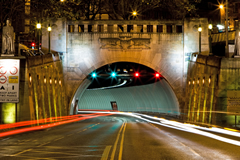On occasion I do get the strange impression that I have fallen in to a deep sleep only to awake in an episode of ‘Life on Mars’ as it becomes evident that twenty first century progress simply hasn’t reached some key, fundamental areas of society that by now ought to have been well sorted.
This week a couple of things came to my attention that made me angry and somewhat baffled as I travelled around the various ‘Downtown Towers’ across the North of England, where businesses are finally celebrating the end of the long, hard recession.
The first was the issue of domestic violence. This is a taboo subject that I got involved in many years ago as a councillor when I was part of an ultimately successful campaign to establish a women’s refuge in Skelmersdale.
I saw first-hand the devastation to families that ‘men’ bullying and battering their wives causes, and it is an issue I have remained concerned about and interested in for over twenty years now. The shame is that there is as much need for the Refuge in Skelmersdale now as there was back in 1989; and that there still appears to be a reluctance of police, courts and politicians to treat the beating of women as a serious criminal act.
It emerged this week that a majority of domestic violence offenders are more likely to be given a slap on the wrist and community service than serve a prison sentence. This is just not good enough. If you beat a woman up then a jail sentence ought to be the automatic penalty. Repeat offenders should be jailed for a significant period, named, shamed and put on a public register that can be viewed by the entire community.
The recent ‘docudrama’ screened by the BBC ‘I was Murdered by my Boyfriend’ was the true story of a young woman who was beaten to death with an ironing board in front of her young daughter by the man who ‘loved’ her . This programme should be an essential part of the curriculum for teenage boys and girls at school. It really is time to start to take this issue seriously, raise awareness and educate. We need to be closing Refuges in the years ahead because the need for them should be redundant in a modern twenty first century society. Sadly, I’m not holding my breath.
The other issue that had me shaking my head in despair was a reminder, via a tweet from a Liverpool Labour Councillor, that UK Plc, which currently boasts one of the fastest growing economies on the planet, has to stock food banks in order for some of its citizens to get a decent meal. If that doesn’t make you a little ashamed to be British, I don’t know what would.
We can argue all day long about the ‘scrounger’ culture, which is largely a fictitious account of millionaire benefit recipients, usually Eastern European immigrants, peddled by UKIP and some of the more unscrupulous sections of the media. But do we honestly believe that in 2014 kids and pensioners should be having to queue up at nineteenth century style food banks? I think not, and again until this is tackled and a fair welfare system re-introduced, then we cannot truly celebrate the economic ‘miracle’ that we are apparently witnessing.
Of course there are benefit cheats, just as there are tax cheats. But just as we wouldn’t penalise every successful billionaire entrepreneur for the sins of a few, we shouldn’t penalise those who have unluckily and reluctantly fallen on hard times through unemployment, disability or old age. We shouldn’t – but we do.
To end on a lighter note, because it is Friday and I am generally an optimistic, happy kind of guy, there was one other thing that made me truly believe that I had slipped into a coma, been thrown in to some sort of time machine and transported to a time man (and woman) forgot.
The news that Everton Football Club had smashed their transfer record and spent a staggering £28million on Romelu Lukaku was a genuine ‘back to the future’ moment. The first time I remember Everton smashing not only their own transfer record for a centre forward, but the country’s, was back in 1974, when we signed Bob Latchford from Birmingham for £350,000! Or, put another way, for what Lukaku will earn AT Goodison Park over the next six week’s!
It’s a funny old world – but sometimes it’s serious.







